Tübingen
South Africa Program 2010
Cooking
"Kässpätzle" 2010
Report: "Cooking
of K�ssp�tzle" by Cedric Nkwanyana
One of the wonderful things I have found essential to my life in
the Tubingen South Africa programme is the cooking of K�ssp�tzle.
Sp�tzle is perhaps the popular meal here in Germany, where as in
South Africa it's meals that have meat, meaning meat has to dominate
in the whole meal. It's in this day that I managed to change my
attitude towards pasta.
From my past experience of pasta, I didn't like it at all. One of
the reasons was that I had no idea from what and how is it being
made and I guess it was because of lack of interest that I didn't
try finding out. And here in Germany I had chance to actually see
everything from the start up to the point the whole meal was ready.
It was a great experience and surprisingly I actually found myself
enjoying the meal, the smell and the softness of spatzle, it's like
this was meant for me.
I am now in the position of saying I can prepare pasta from scratch
for my own family. It's actually easy, like all you need is flour,
eggs, cheese, salt, saut�ed onions and water, which is obviously
not hard to find in South Africa. Thanks to Barbara we were given
the steps of preparing this by ourselves back home. Also another
thing I have noticed about the Germans when it comes to eating is
that they do not eat heavy meals like us South Africans. I have
learnt to eat like the Germans.
Beside the preparation of the actual Spatzle, being in the kitchen
cooking together with Germans and different tribal groups from South
Africa was the most interesting part to me because even us we cook
meals differently from tribe to tribe. Finding myself in the kitchen
with other people making the same meal was incredible it was not
just about the meal that we were cooking it was about the unity.
It makes one be humble and realized that we need each other regardless
of our differences and that is just wonderful. According to my culture
which is (Zulu) it is usually the women who prepare food and men
wait to be served, this in turn deprives us, the men the chance
to experience the warmth and the joy that comes with preparing a
meal, but then there are lot of reasoning behind that, which of
course are understandable to us. But, in this program I got to cook,
make salad, set the table and even wash the dishes afterwards. This
was an amazing experience for me. Now I can teach my own mom how
to cook (spatzle).
The whole experience of preparing something together as a group
made us become closer and learn more about ourselves and each other's
traditions. In addition it helped us understand each other more.
I have realised that it's an easy way of creating a close relationship
between men and women. And it can lessen the conflicts about the
taste of food, since there will be no one to complain that food
doesn't taste well and all those sort of things which can break
families apart.
I personally would really like to extend my gratitude to Barbara
(our host). She is this host who is always active, like when you
are down especially in the foreign country, when she shows up everything
gets back to normal. Even if she is not directly talking to you
but her presence is quite effective to our happiness. She says,
Ja! And we say, Ja! Actively then we know everything is perfect,
a great host ever. Thomas, Philina and Ann-Kathrin are like one
of us. I myself do not feel that I am a South African in front of
them and that they are Germans. I like this idea of being a human
rather than being a South African or German.
Not only to the people we have close contact with here, but I would
also like to extend my gratitude to the people in the offices (sponsors)
who made this programme possible. People who put their money to
make it possible for free transportation, food and those people
who contributed with their warm clothes for us to feel warm. Thank
you! Thank you! Now I'm going back to South Africa with a new recipe.
Cedric Nkwanyana
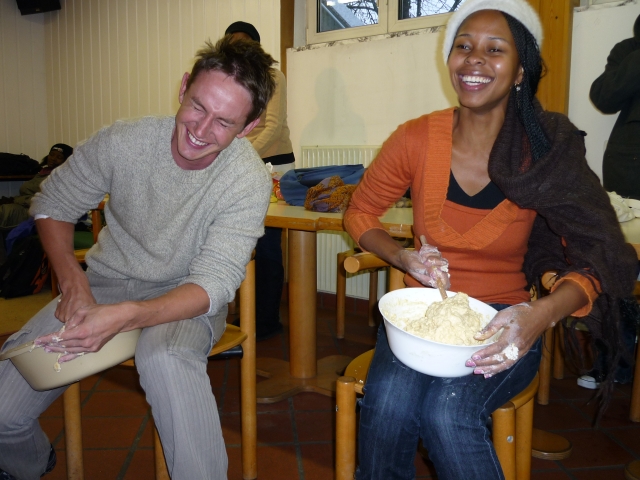
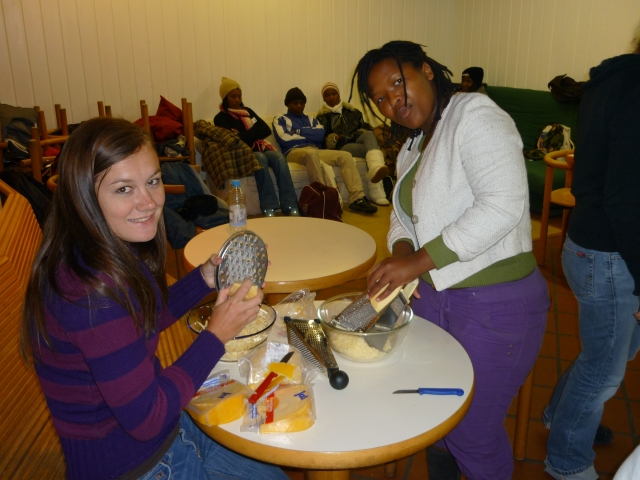
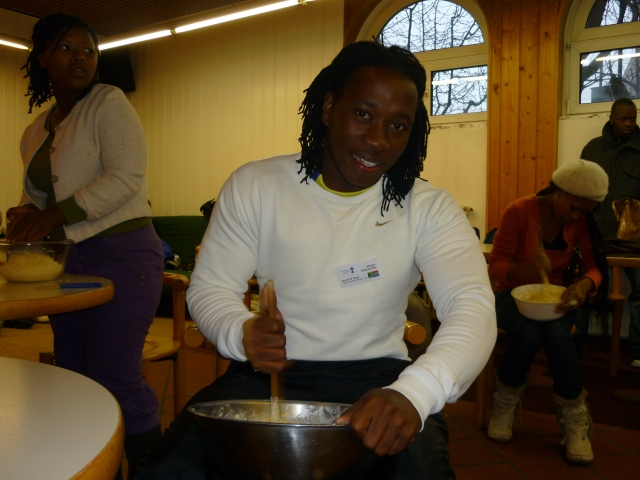
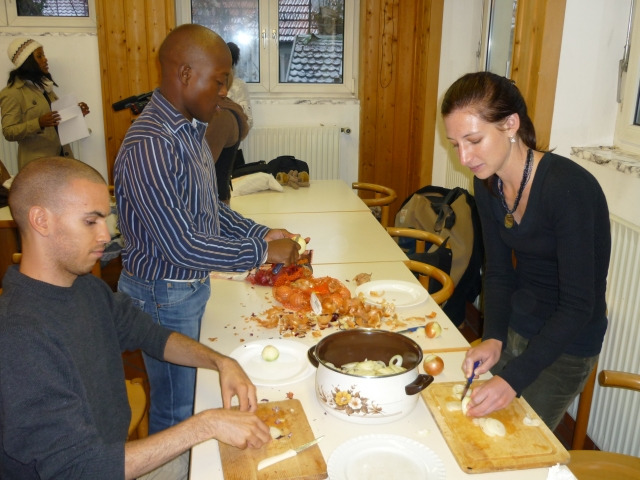
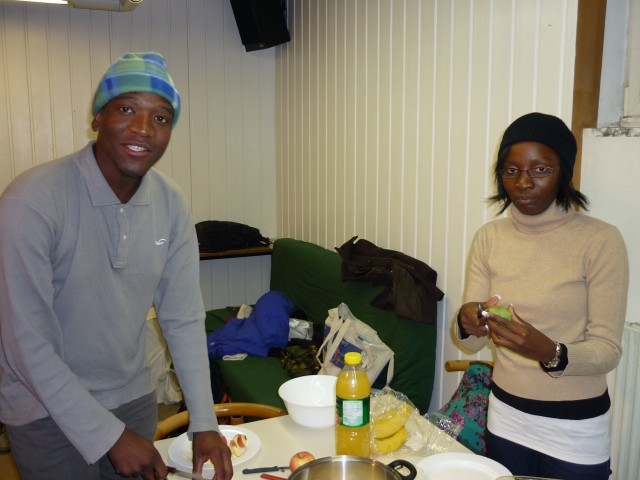
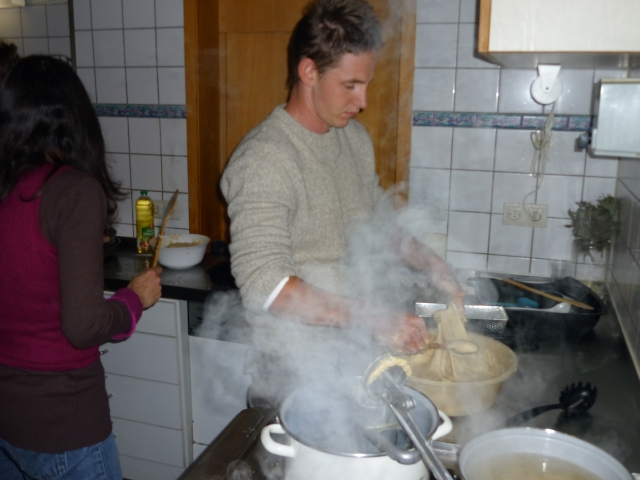
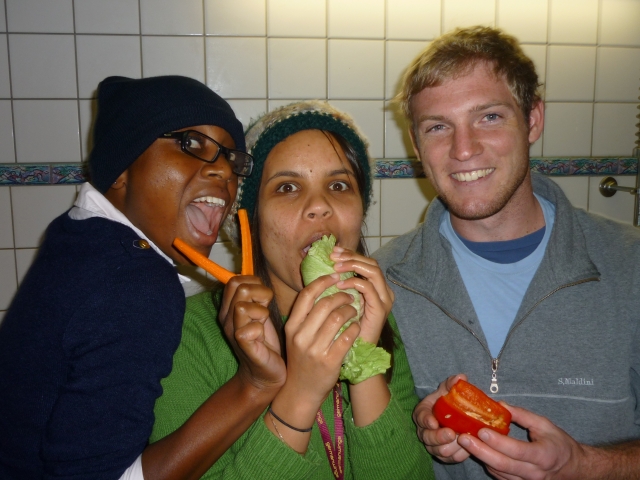
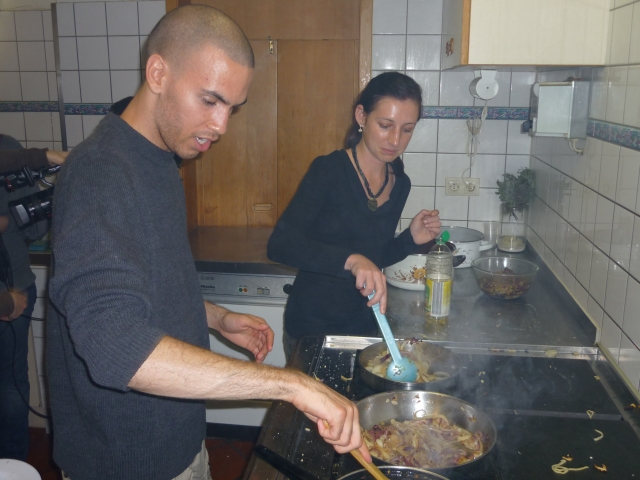
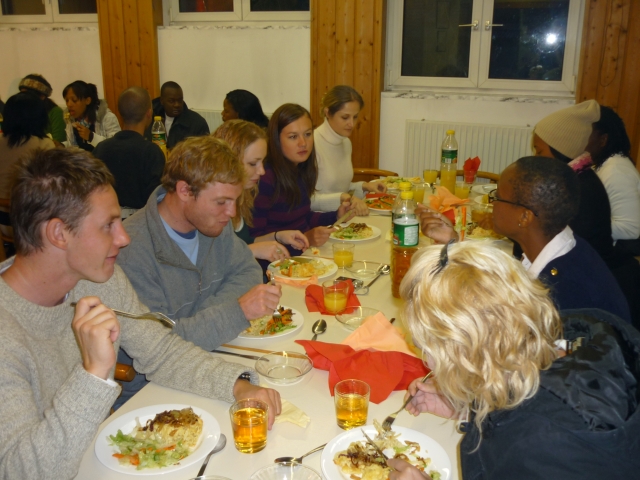
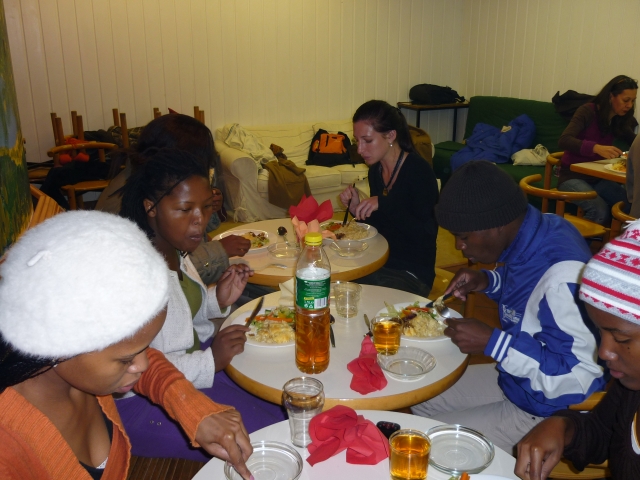
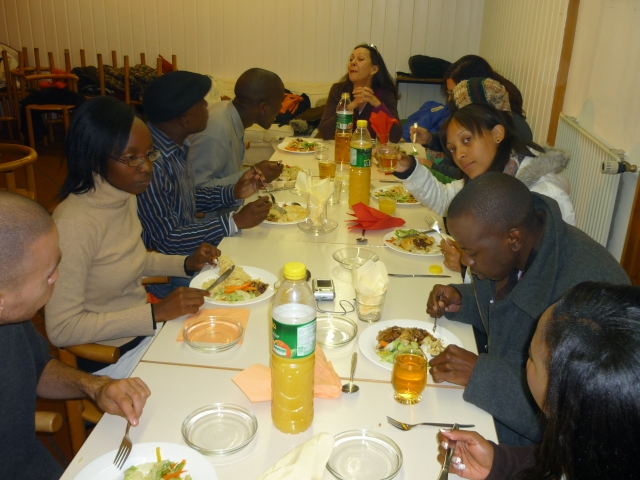
|
|
Thomas
Bilda / © Universität
Tübingen
|
